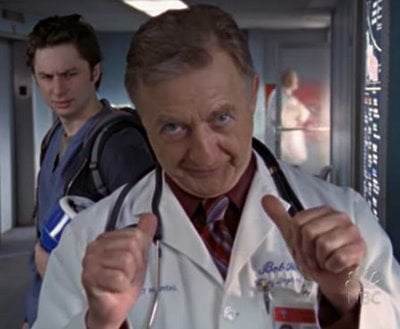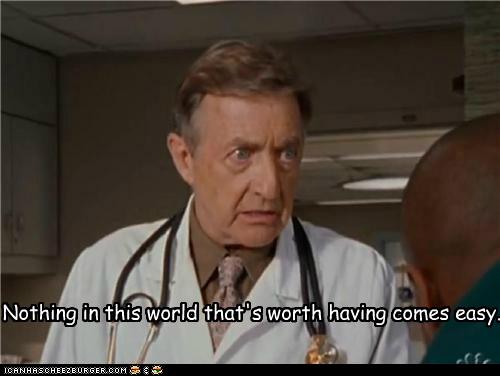Manager Employee Relations

To Be a Manager
To be a manager is to be in charge, to make decisions, and live by those decisions. Some managers are strictly spokesman for his or her company with little to no authority to change company policies or practices. Some can use their power to manage employees and methods to fit a situation. The book "Health Care Management" lists four functions of management as Organization, Planning, Controlling, and planning. A good manager uses all four functions together to manage his or her workplace best.
Some managers will work for the future of his or her company. Some will use employees as interchangeable recourses to move from job to job as needed for the present. In the health care field, this is just not practical. A class in health care management can go a long way to improving a person’s ability to manage a workforce today with an eye on the future.
Core Management
At its core, management is the control of personnel and actions within a company or organization. A manager is in charge, responsible for his or her department, company, or team. To manage is to make decisions, implement them, and live by those decisions. Some managers have strict rules to follow, only allowing them to work within the company’s set protocols. This form of management makes a manager little more than a spokesman for upper management, such as a company owner or company board. In other organizations, the manager is free to use his or her experience and training to manage employees to maximize the employee’s full potential.
Four Processes of Management
According to the book "Health Care Management " management can be broken down into four functions Organization, planning, controlling, and leading. These four functions help define how a manager may approach his or her duties. Most managers will use parts of these together to manage his or her work duties. To plan out a work schedule, a manager should know the strengths and weaknesses of his or her team. A manager should know what is necessary for the completion of any tasks. This can be done best through the organization. Understanding ahead of time, who would do the job best, and who would be the best to train with that person for the future saves money. A wise manager needs to look and plan for the future. This means that planning also includes both controlling and leading.
By maintaining an active control of how the employees are doing, a manager can judge who is excelling and who needs to improve their work performance. By organizing a workforce and workload by what a manager learns through the organization and controlling, he or she will be able to plan effectively. Leading is the ultimate goal for a manager. ” Leading is the process of arousing people’s enthusiasm to work hard to fulfill plans and accomplish objectives” (Lombardi, Schermerhorn, & Kramer, 2007, page 17). Effective leadership is the difference between a healthy working environment versus a workplace that has trouble meeting goals and high employee turnover. All these functions are necessary to a workplace that can both support its workload but also grow as needed.

Manager versus spokesman
Some workplaces try to treat their workforce as if they were interchangeable. This means all employees are expendable. This is just not the case in the healthcare industry. A manager cannot replace a nurse with a janitor unless that janitor has training as a nurse. A manager in a healthcare industry he or she will need to understand that people need to know what he or she are doing before ever touching a patient. This means a larger health care facility may have staff constantly training people for the future.
Health Care Management Class
A college course in healthcare management can help both a future healthcare manager and employee learn what is necessary for the administration process. In an article called “Why Do Management Practices Differ,” the authors suggest that a significant factor to proper management is in good training.“ The first is by promoting factors that increase average management quality in each firm (say through better business education) and therefore raise productivity within the average firm” (Bloom, Van Reenen, 2010 page, 9). A class that can provide a firm understanding of problem-solving, planning, and crucial decision-making can go a long way to developing the necessary skills a manager needs.
Conclusion
A manager makes decisions based on either his or her experiences and education or company rules and protocols. A class in healthcare management can provide a manager with a foundation for the implementation of management styles and a structure in which he or she can use to build a future with a company. The book “Health Care Management” mentions four functions to management, but in reality, these functions are in use together to best manage a team, department, or company. Above all of the tasks, a manager has to lead. An effective leader not only works for today, he or she also works for tomorrow.

References
Bloom, N., Van Reenen, J.(2010). Why Do Management Practices Differ Journal of Economic Perspectives Retrieved from https://ehis.ebscohost.com/eds/detail?vid=2&hid=23&sid=e251eda7-07d2-4d8b-8c28-861b77091709%40sessionmgr14&bdata=JnNpdGU9ZWRzLWxpdmU%3d#db=eoh&AN=1086383
Lombardi, D., Schermerhorn, J., & Kramer, B. (2007) Health Care Management. Retrieved from https://ecampus.phoenix.edu/content/eBookLibrary2/content/DownloadList.aspx?assetMetaId=0d0c1b58-79ff-469f-acf2-be643543b19a&assetDataId=3bef9e6b-e3e3-4974-9077-bb41c32913de
Sources Consulted
Bloom, N., Van Reenen, J.(2010). Why Do Management Practices Differ Journal of Economic Perspectives Retrieved from https://ehis.ebscohost.com/eds/detail?vid=2&hid=23&sid=e251eda7-07d2-4d8b-8c28-861b77091709%40sessionmgr14&bdata=JnNpdGU9ZWRzLWxpdmU%3d#db=eoh&AN=1086383
Lombardi, D., Schermerhorn, J., & Kramer, B. (2007) Health Care Management. Retrieved from https://ecampus.phoenix.edu/content/eBookLibrary2/content/DownloadList.aspx?assetMetaId=0d0c1b58-79ff-469f-acf2-be643543b19a&assetDataId=3bef9e6b-e3e3-4974-9077-bb41c32913de
Your managment style
© 2013 Michael Collins aka Lakemoron








